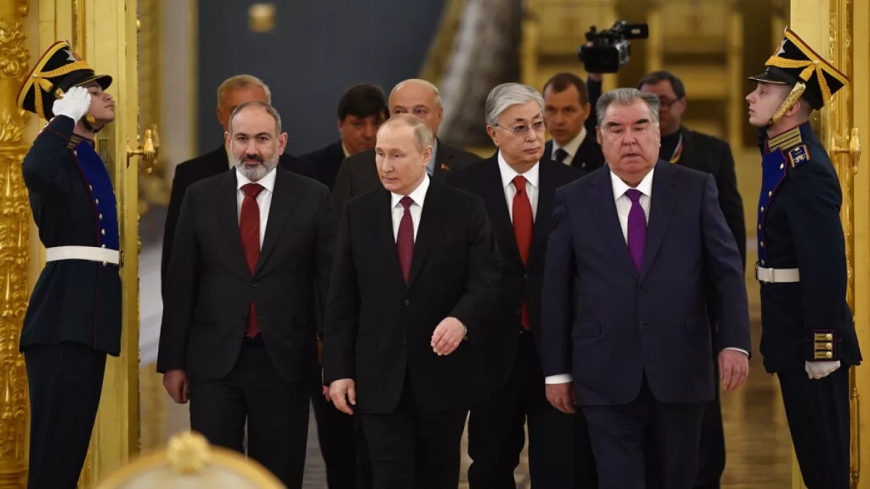The West is trying to pull Armenia back from its allies, although the example of other countries shows what this is leading to, Viktor Vasilev, the permanent representative of the Russian Federation in the CSTO, said in an interview with "RIA Novosti".
"They (Western countries - ed.) are not just trying to "drive a wedge", but actually withdraw Armenia from its allies. Naturally, all partners are clearly aware of this. We see with the example of other situations, including Transcaucasia, that same Georgia, what all this leads to.
"Naturally, we cannot but have concerns and concerns regarding the actions of "external players" and the leadership of Yerevan, which destabilize the situation not only in Armenia itself, but can also aggravate the situation outside its borders," said Vasilev.
Azerbaijani Foreign Minister Jeyhun Bayramov met with OSCE Secretary General Helga Schmid today in Baku. At the meeting, Bayramov stated that "there are territorial claims against Azerbaijan" in the current Constitution of Armenia during the peace process between Armenia and Azerbaijan, and that this is "unacceptable". At the meeting with OSCE Secretary General Helga Schmid, the Azerbaijani side listed the "steps threatening" the advancement of the peace agenda, noting that the accelerating militarization in Armenia continues to cause concern.
RA NA Deputy Speaker Ruben Rubinyan announced during the 10th BRICS Parliamentary Forum that RA is ready to continue the demarcation process with Azerbaijan and sign a peace treaty in a short period of time.
He noted that the 12 km section of the Armenian-Azerbaijani border has already been demarcated, and the border guard services of both sides have been deployed in the respective sections of the border, writes Sputnik Armenia.
"Armenia has no ambitions outside of its internationally recognized territory and is ready to carry out constructive and intensive work in the direction of continuing the border demarcation process and concluding and signing a peace agreement in a short time," Rubinyan stated.
He emphasized that Armenia is not only ready, but also interested in becoming a part of international transit routes by unblocking regional infrastructures. According to the deputy speaker of the National Assembly, there is no doubt that large infrastructure projects in the South Caucasus can become a unifying factor for the countries of the region and not only.
"The restoration and opening of transport routes in the South Caucasus should lead to the formation of a stable regional model of the system of economic relations," said Rubinyan.
In this context, he noted that within the scope of the peace agenda and the perspective of regional development, the RA government has developed the "crossroads of peace" project, which is a project to unblock all regional infrastructures, based on the principles of full respect for the sovereignty and jurisdiction of countries, equality and reciprocity.














































